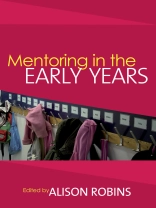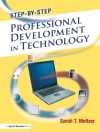`This book gives a thorough, detailed account of mentoring, with accompanying case studies which will be invaluable to anyone undertaking the role…this book will encourage readers to develop reflective practice in their settings and that this will help to improve quality′ – Nursery World
`A valuable and timely contribution to the Early Years field. This will be essential reading for all Early Years practitioners engaged in practice-based learning and will provide valuable guidance for all mentors in the field′ – Dr Rose Drury, Lecturer in Early Years, The Open University
Mentoring is an important part of good, professional practice. It provides a framework of support for continuous personal and professional development and is integral to the development of quality provision within early years.
This book is designed as a guide for all those involved in the mentoring process. The roles of the mentor and practitioners are carefully examined and chapters cover the following:
o The role of the mentor
o The characteristics of a good mentor
o How mentoring supports personal and professional development
o The diversity of early years settings and professional roles
o Case studies of mentoring in practice
Chapters include a mixture of relevant theory, practical suggestions, case studies, questions for discussion, activities for personal and professional development and suggestions for further reading. There are suggestions and examples of materials that may be used, and a glossary of key terms.
Table des matières
Introduction – Alison Robins
What Is Mentoring? – Sue Callan
The Mentor as ′The One in the Middle′ – Sue Callan and Eryl Copp
Being Reflective: Encouraging and Teaching Reflective Practice – Kate Fowler and Alison Robins
Collecting and Collating Evidence through Profiling – Victoria Eadier and Melanie Pilcher
Designing and Implementing a Mentoring Scheme – Janet Murray
Mentoring the Process of Change: A Case Study – Sarah Kelly
Glossary of Terms












